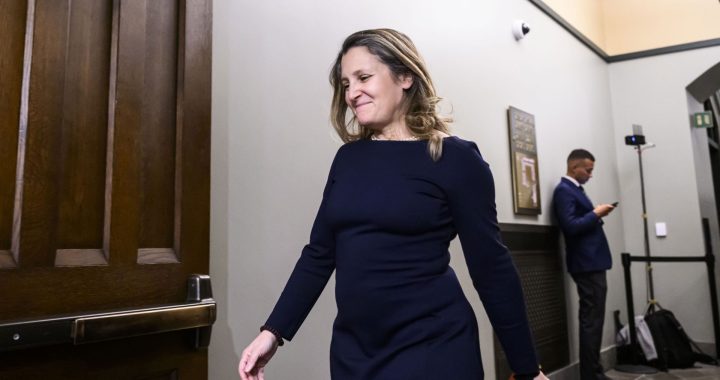InFocus
The chair of the Labrador Capital Strategy Trust (LCST) says the issues facing Indigenous communities run so deep Ottawa alone will not be able to solve them.
Clint Davis leads the LCST, an organization that works to build economic and socioeconomic strategies to benefit the Nunatsiavut says private investment will be needed too, if the economic outlook for Indigenous people is going to change.
“There has been support in this budget for infrastructure and the gap is significant. It’s at least $30 if not $40 billion and the government of Canada will not be able to address this gap on its own,” Davis told InFocus Host Melissa Ridgen.
“The only way you can do this is to create the right private partnerships, be it public – private partnerships or some other type of model, to attract private capital too address this. And I didn’t see anything like that in the budget unfortunately.”
But not everyone agreed with Davis who joined analyst Pam Palmater, Joseph Quesnel on InFocus to talk about the federal budget that was delivered Tuesday in Ottawa.
Joseph Quensel, a Metis political and public policy analyst who has worked extensively in Indigenous governance and economic development, thought there were some good points to the budget, including funds to help Indigenous entrepreneurs.
“With First Nation entrepreneurs, like any entrepreneurs, the issue is access to capital,” Quesnel said. “First Nations more than anyone are faced with that (hurdle) because of the land ownership restrictions. They can’t use land as collateral. First Nations need capital, this budget goes a long way for providing that.
“The First Nation Major Projects Coalition has applauded the budget in terms of providing over a $100 million for First Nation communities to secure large resource projects.”
The $100 million dollars has been allotted to establish an Indigenous growth fund to encourage investments in Indigenous led businesses by Aboriginal Financial institutions.
Another $50 million over five years will go towards the Metis Capital corporations to support the start-up of small to medium sized businesses.
Pam Palmater, a Mi’kmaq lawyer, professor, activist and political pundit.
She has crossed the landscape fighting legal issues impacting First Nations including poverty, housing, child and family services, treaty rights and education.
Palmater was critical of the lack of funding for women and children.
“(Liberals) tout it as being about the children but in fact this budget is lacking a gender-based analysis, an Indigenous and human rights analysis, because you have this $1.2 billion in funding for Jordan’s Principle, however it’s flat funding,” she said. “There is no increase or accounting for population growth, and we’re the fastest growing population.
“And we have to remember, this is no gift. They don’t get to be patted on the back for it. They’ve been dragged to this budget kicking and screaming by the Canadian Human Rights Tribunal and a fifth non-compliance order so this is nothing to celebrate.”
Palmater also noted there’s nothing to address the CFS crisis affecting Indigenous families across the country.
All three panelists were displeased with the lack of new housing initiatives but applauded the progress so far, and continued efforts to have all Boil Water Advisories lifted by 2021 on First Nations, replaced with clean drinking water infrastructure.











